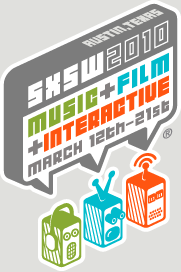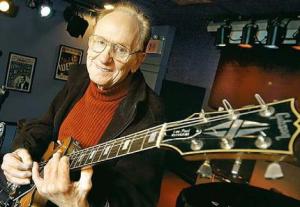I received an email today announcing the release of Bayani Redux. When I saw this, I was under the impression that we were going to get a release of B-sides and remixes for the sophomore album by Seattle based Blue Scholars, Bayani. For anyone who has followed Evolving Music for a length of time, you’ve seen the concert reviews and album reviews for the duo of Sabzi and Geologic (aka Prometheus Brown.) And yet, I still find trouble reconciling myself with how talented they are and how little mass exposure they have. Granted, some of the best music falls through the cracks and gets chewed up by the massive grinder of the music industry, but I hold out hope that the word of mouth on some of the best underground artists will reach surface and flip the industry on its head.
I feel like the music industry is caught in a bad dream. That dream where you keep running, turning corners, opening doors, all to get away from something, and yet you can’t. Every time I turn on the television or flip through the radio dial, it’s like I’m opening a door in the dream and finding myself in the same place, listening to recycled music from the past twenty years, sometimes infused with a new trick like auto-tune, sometimes not. But people keep buying, and therefore, labels will keep re-packaging. This is an old rant of mine, but one that came back to the surface after reading the release details for the second coming of Bayani.
When Rawkus Records released Bayani on June 12th, 2007, it was the second album from the duo and one that promised an enormous amount of future material based solely on the progression of the artists between it and their eponymous debut. However, in reading the re-release article, I come to find that only 20,000 copies of it have sold. That’s 10,000 per year in the two since its release, which averages out to about 28 albums per day. That’s not too bad, until you think about the fact that Flo-Rida probably averaged 28 single downloads per minute for his crap and the current iTunes chart topper is Miley Cyrus.
What do you need to do to expose people to good, quality music these days? 2007’s Bayani is a far stronger album than Kanye West’s 808s and Heartbreak, yet that went Platinum with 1,000,000 sold in just three months and we’re talking two years later at 20,000 for a better hip-hop CD. Is it the lyrics? Are lyrics with depth and intelligence, as pushed out by Geologic and the majority of his underground counterparts, too much for radio listeners? Is it that any variety making a beat sound like something you haven’t heard in every Top 10 song for the past 5 years is frightening? Personally, I’m not sure. But what I can tell you is that while Kanye West walks around making an ass out of himself with all of the money the pop-hypnotized public gives to him, quality artists like the Blue Scholars are trying to figure out where the inspiration for and money to produce their next album will come from.
So do yourself a favor. Turn off the radio, stop watching MTV, and do something other than Shazam the latest club track you heard last night while you were drunk off your ass. Check out Indiefeed, your local independent record store or any vast number of music blogs and resources online and find something new, something different, and in many cases, something more artistic.
Bayani Redux comes out with three previously unreleased tracks on September 1st.









